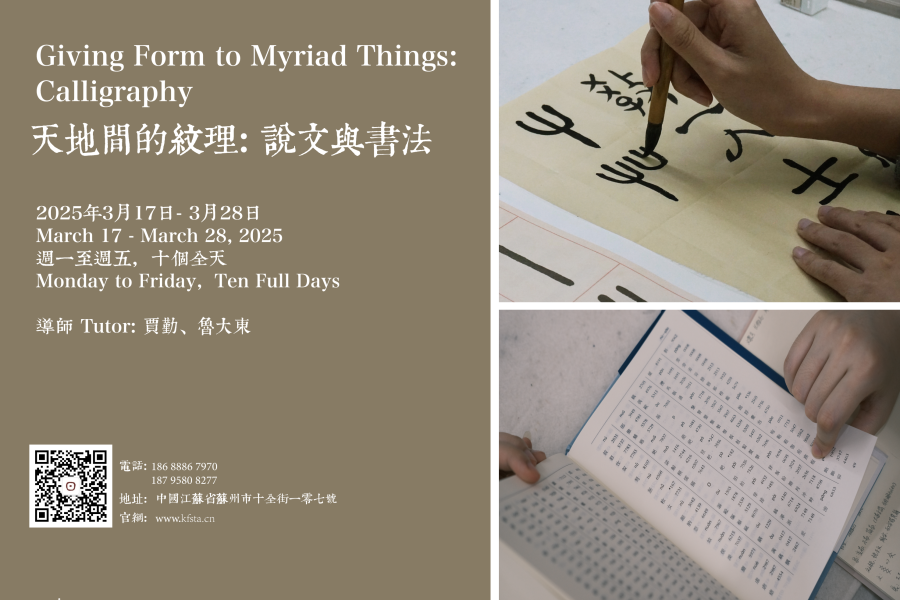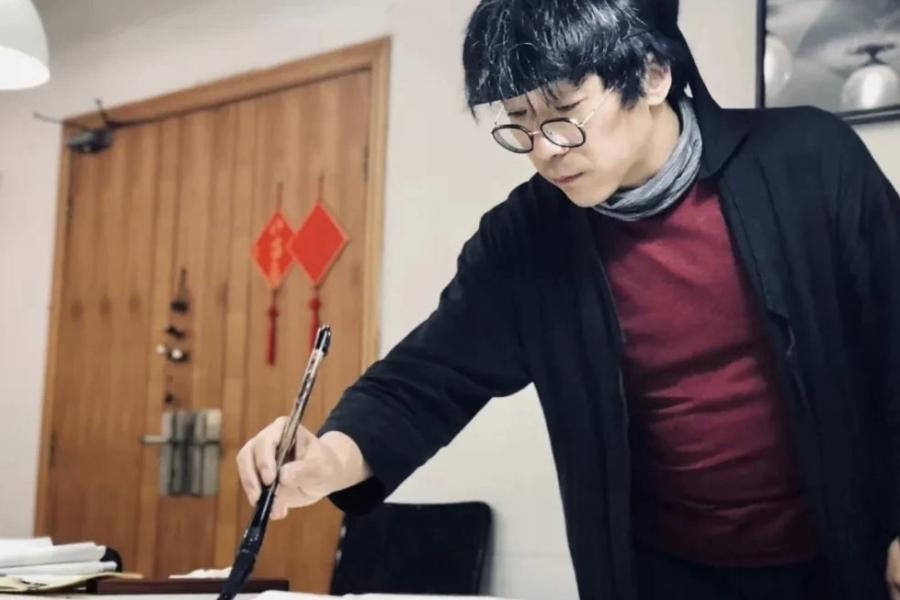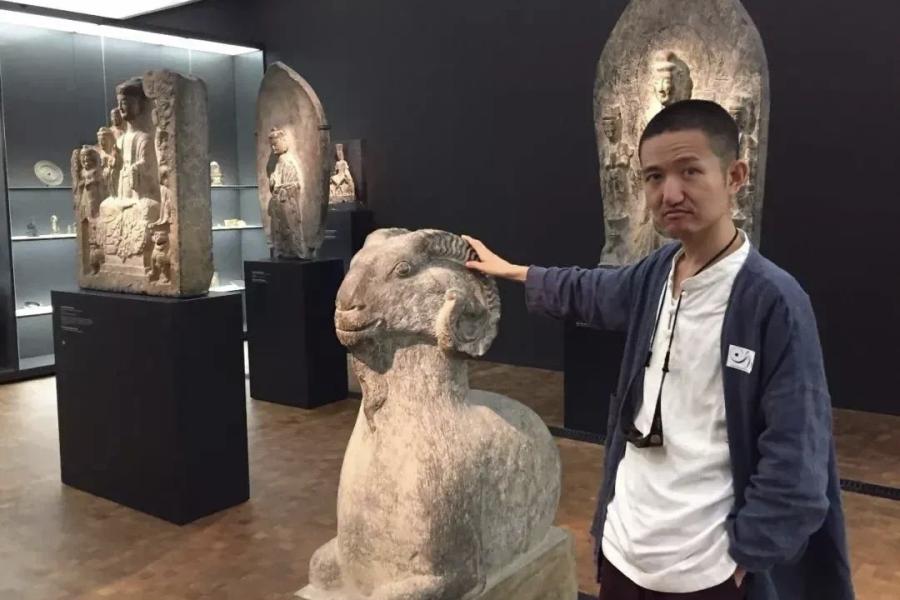Under the skilled instruction of tutor Lu Dadong, the morning section of this course will address the historical development of calligraphy from two main perspectives: firstly, as a history of calligraphic artefacts, including script types, historical calligraphic works, and the implements used by calligraphers to create them; and secondly, as a history of the body trained to move as an expressive vehicle of calligraphic skill.
Prof. Lu will guide students in the analyses of script types and in the range of writing techniques. He will also address the correct postures used in writing calligraphy and the foundational relationship between calligraphic discipline and an ethos of self-cultivation, helping students to develop a personal, hands-on understanding of the culture of calligraphy.
In the afternoon section of the course, tutor Jia Qin will present a series of lectures elucidating the position of Chinese written words within China’s traditional thought system. Using the Shuowen Jiezi as the main text, Prof. Jia will examine the core knowledge essential to an understanding of the relationship between the Chinese written word and the order of Nature. Prof. Jia will also discuss the philosophical contexts of Chinese words in relation to the classic book of divination, Yi Jing (Book of Change). Prof. Jia will pay particular attention to two key concepts: the original ideographic word system as a form of “true writing” reflecting the structure of the cosmos, and the evolution of ideographic word as a method of “recording”. “True writing” and “recording” highlight the dynamic counterpoint of “ideology” and “historical truth”, an important force that drove the evolution of early Chinese philosophical thought.





